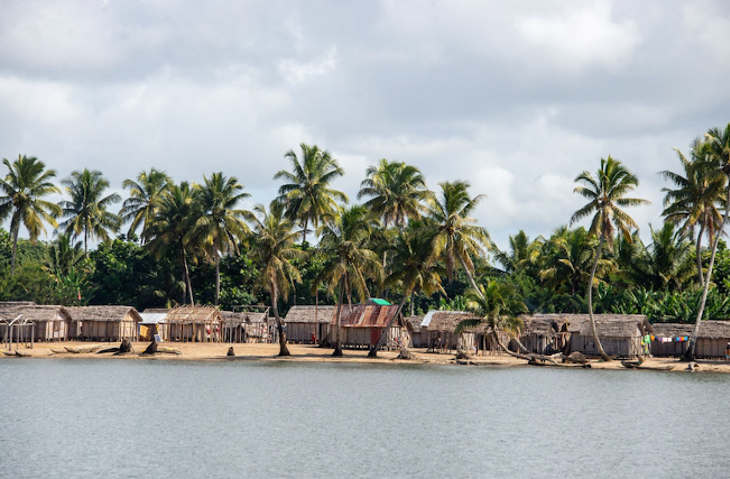Benjamin Rice, Ph.D., from Princeton University, spoke about The Ecology of Infectious Diseases in a Changing World: Coronaviruses, Malaria, & Madagascar at Rice360 Institute for Global Health Technologies’ on October 20, 2022. Click here to view the recorded seminar.
Dr. Rice and his team work on tracing factors impacting the prevalence and spread of malaria in various regions within Madagascar. Through their work, they are improving malaria-related data collection within the country—an effort that can improve control programs and guide resources to where they can make the most impact.
Their data-driven approach centers on analyzing the spatial and temporal trends in disease transmission. In addition, the team tracks ecological and environmental factors, such as deforestation, natural disasters, and changes in land use, to identify how these factors align with malaria prevalence, likely due to their impact on the mosquitoes that transmit the disease.
Understanding disease transmission patterns within populations across multiple regions featuring different ecologies and community-environment interactions provides insights into the interplay between the environment, people, and disease transmission.
To collect malaria data in Madagascar from locations beyond those reached by the limited roadways, the team’s mobile clinics include a boat suitable for navigating the waterways that connect many areas of the country. Using the boat, the team can visit communities far from health facilities. During their visits, they gather data on conditions that contribute to the spread of the disease, collect blood samples, perform rapid diagnostic tests, and provide malaria treatment.

As a result of reaching out to communities via the waterways, the team is building a more complete picture of the dynamics of malaria across Madagascar and improving available data on the disease, the impact on people, and what ecological conditions exist throughout the country that can impact disease transmission. These data are helpful in tracking challenges with controlling the spread of disease and can help researchers and care providers with identifying solutions.

Three colleagues joined Dr. Rice for the presentation's question and answer session. Dr. Mahery Rebaliha, MD, is a medical doctor and malaria research project specialist in Madagascar. He leads a mobile clinic team that collects data and provides medical care to communities far from health facilities. Also, Dr. Saraha Rabeherisoa, MD, is head of the vector control programs at the Madagascar Malaria Control Program and leads genomic surveillance of imported malaria in low-transmission areas in Madagascar. And Sylviane Miharisoa has a master’s degree in entomology and is a researcher on multiple projects focused on the ecology and diversity of mosquito vectors in Madagascar.
Rice360 Institute for Global Health Technologies is grateful to Dr. Rice, Dr. Rebaliha, Dr. Rabeherisoa, and Ms. Miharisoa for sharing their work with our community.

